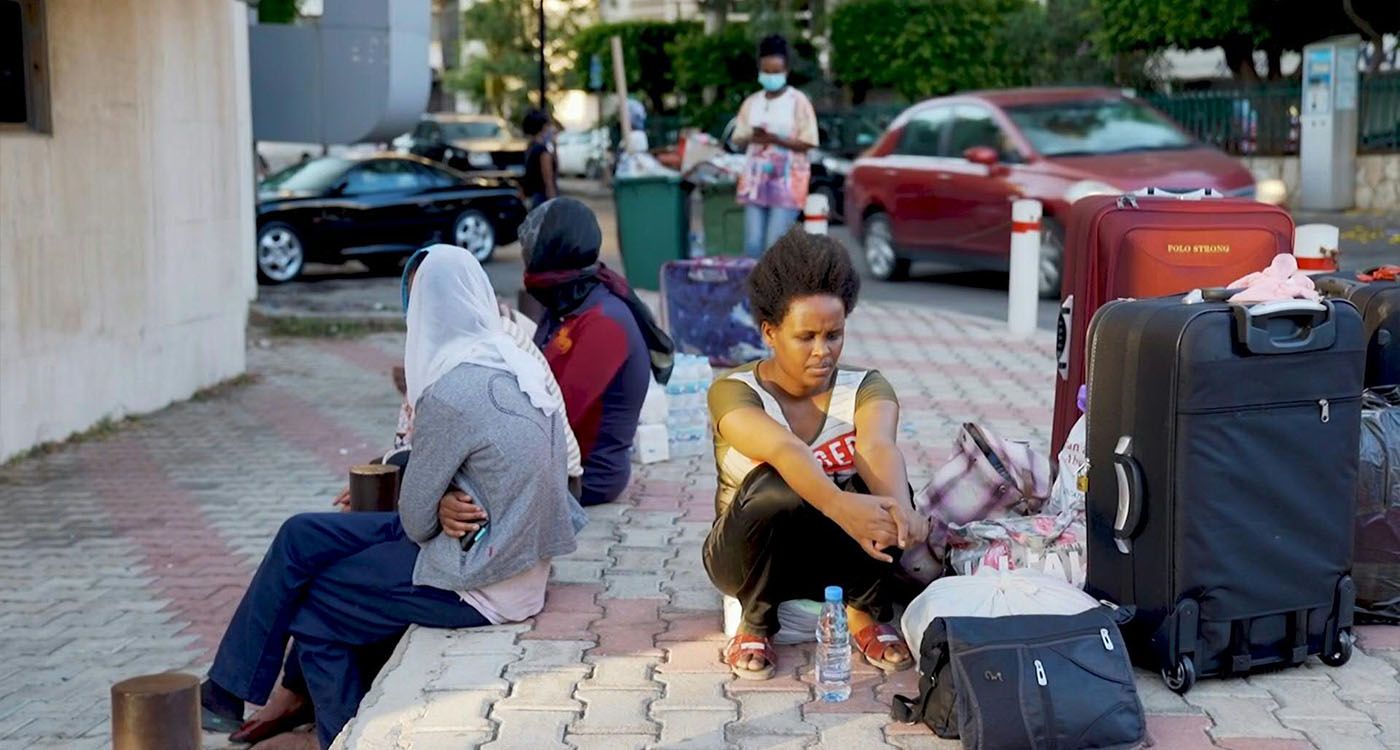
They come to Lebanon in search of work, a salary, and sometimes a future. But for many foreign domestic workers, the dream quickly turns into a nightmare. Behind certain recruitment agencies and cleaning companies, a shadow economy thrives — that of human trafficking disguised as legal employment.
The case known as the “Red Nights,” which links prostitution to human trafficking, has resurfaced in recent months. Several arrests have been made, but much of the network remains hidden. This is no longer a simple matter of runaway workers or administrative delays — it has become a full-fledged public security concern.
Testimony: Nancy’s Entrapment
In a neighborhood of northern Metn, Mirna, a Lebanese woman, turned to a licensed recruitment agency in search of help with housework. She employed a young Ethiopian named Nancy — quiet, polite, seemingly motivated. But two weeks later, Nancy vanished without a trace.
Initially puzzled, Mirna launched her own investigation. She called the agency, questioned her neighbors, and reached out to contacts in the recruitment sector. Gradually, the truth began to emerge: Nancy hadn’t left on a whim. She had been contacted by a fellow Ethiopian living in Lebanon who persuaded her to join a “night work” network, promising a better and easier life. Behind this switch was a well-oiled operation hiding behind a veneer of legality.
High-Level Complicity?
This testimony is just a glimpse of a much larger reality. Joseph Saliba, head of the recruitment agencies’ union, stresses the confusion in public opinion between licensed agencies and illegal brokers. These impostors pose as professionals, though they have no legal standing. They post deceptive ads on social media, preying on the ignorance of citizens and expats alike.
Saliba insists that 85% of the sector consists of official agencies, strictly monitored by the Ministry of Labor and General Security, and subject to immediate sanctions for non-compliance. These agencies, he says, only offer annual contracts — unlike the hourly or daily labor that has become commonplace, despite being completely illegal.
He also points to the role of certain cleaning companies that exploit women without legal residency permits — with complete impunity. “If agencies can be shut down with a single administrative order, why do these companies escape all scrutiny?” he asks.
Saliba is calling on municipalities to step in. Areas like Nabaa, Bourj Hammoud, Sabra, and Ouzai have become illegal housing hubs for dozens of exploited women, yet local authorities remain inactive.
A Networked System: Fake Agencies, Real Victims
As more cases come to light, it’s clear this issue goes far beyond isolated violations. It is a structured system with complicity at multiple levels.
According to a security source interviewed by Houna Loubnan, organized networks — composed of Lebanese and Syrians — are exploiting these workers in areas like Bourj Hammoud, Dora, Maameltein, and Ouzai. The source mentions the existence of “fictitious sponsors”: individuals who, for $300 to $500, register a worker under their name, allowing agencies to bypass official quotas. The women are then “resold” on the black market, where their exploitation can bring in up to $800 a month due to high demand and lack of legal alternatives.
The scheme is well-rehearsed: seemingly “respectable” agencies renew residency permits on paper, list women as domestic helpers, then redirect them into illegal labor.
Their supervision disappears — and so does their freedom. Phones confiscated. Outside contact cut off. Hidden housing. On the surface: a domestic worker. Behind the scenes: a woman sold into the underground sex trade.
Theoretical Sanctions, an Absent State
Penalties have been announced — up to 60 million Lebanese pounds for employing undeclared workers. But on the ground, nothing changes. No consistent arrests. No shutdowns. No prosecutions.
Worse still, some of these ringleaders have already been arrested… only to be released and allowed to resume operations as if nothing happened.
As long as institutions turn a blind eye, these women will remain trapped in a country where their dignity is sold for a handful of dollars.



Comments